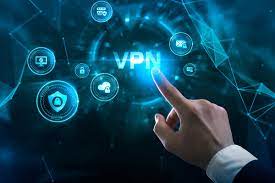What is VPN
A virtual private network (VPN) extends a private network across a public network and enables users to send and receive data across shared or public networks as if their computing devices were directly connected to the private network. The benefits of a VPN include increases in functionality, security, and management of the private network. It provides access to resources that are inaccessible on the public network and is typically used for remote workers. Encryption is common, although not an inherent part of a VPN connection.
The downside of using a free VPN?
A recent study found that 84% of free Android VPNs contain malware. That means that if you're using a free VPN on your smartphone, there's an 84% chance it will infect your device with malware.
This isn't some sort of theoretical scenario. In 2017, it was revealed that Hotspot Shield, a free VPN service, was stealing user traffic and selling it to advertisers.
These are not simply bothersome, but they can be deadly. Many of these advertisements will redirect you to sites that may infect your computer with malware. Reputable VPNs do not include advertising on the websites you visit.
The worst offenders are free VPNs which have also been discovered to include backdoors that allow third-party access to your computer. This is a major security issue since it allows anybody with access to monitor everything you do online, including passwords and banking data you input while using the VPN. The bottom line is that free VPNs are not safe and should not be used. If you're looking for a VPN solution, make sure to choose a paid provider that offers a high level of security and privacy protection.
The Federal Trade Commission (FTC) launched an investigation in December 2018. The FTC was looking into whether its privacy policy and advertising practices violated the Wiretap Act. In July 2019, they announced a settlement with the commission, which included promises to cease redirection of users and advise consumers that their activities would be monitored.
The bottom line is that free VPNs are not safe and should not be used. If you're looking for a VPN solution, make sure to choose a paid provider that offers a high level of security and privacy protection.
What if you have to use a free VPN?
If you absolutely must use a free VPN, here are a few things to look for:
- Open source code bases and not-for-profits
- Independent audits
- A provider that offers high-level encryption methods
- A provider that doesn't throttle your connection speed
- An ad-free provider
Paid VPNs Are A Better Solution
Yes, a paid VPN costs money but when you pay for a VPN, you're guaranteed:
- Modern encryption that will protect you and your data
- No logs policies, so no one is storing your online activity
- Faster speeds so you can stream movies, play games, and enjoy the web without buffering
- Access to servers around the world
- Satisfactory customer support
This malware hides behind free VPN,
The new version of DanaBot is now found in free VPN.
Proofpoint researchers have discovered a new strain of DanaBot malware. The user is tricked into downloading infected software disguised as anti-virus programs, VPNs, and online games.The most recent version of the malware was discovered in October 2020. Researchers believe that the malware has undergone some updating, and it is suspected that threat actors will use it in phishing campaigns in the next few months. Its affiliate numbers are also expected to increase.
DanaBot’s new version now includes advanced anti-analysis features and can stay undetected on compromised devices by adding MS LNK shortcut files. It can also target crypto-wallets, which means threat actors aim to steal wallets or login credentials for popular cryptocurrency sites apart from targeting financial institutions.
There is an onile threat called ransomware.
Cyber criminals are exploiting security vulnerabilities in VPN servers to encrypt networks with a new form of ransomware, and may have disrupted industrial facilities in the process.
At least one of the attacks targeting these facilities managed to encrypt industrial control servers with ransomware, resulting in the temporary shutdown of operations. Kaspersky did not identify the victim of the successful ransomware attack, or how the incident was recolved, but have detailed the ransomware that encrypted the network and how cyber criminals were able to gain access.
Preventions of using ransomware :
- Only Download Software From Official Sources
- Don't Download Email Attachments
- Don't Click on Suspicious Links
- Use Antivirus
Conclusion
Don't do it!
When it comes to selecting a VPN, the old adage "you get what you pay for" has never been more true. Free VPNs simply do not provide the same level of security, privacy, and performance as paid services. If you're searching for a safe and dependable VPN service, make sure it has high-end security features and quick connections. How do you test this? Besides choosing a paid VPN, your best option is to take advantage of a free trial period.
Remember, at the end of the day, the security of your confidential data and sensitive information is largely in your hands. Don’t let a weak moment lead you to use a free VPN and endanger your identity and critical data in the process.
Connect to me on LinkedIn







0 Comments